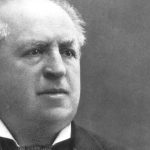
In this excerpt from the introduction to Always Reforming, Channing L. Crisler outlines Martin Luther’s approach to reading and interpreting scripture, and how his hermeneutic can inform scholarship today.
“Comfort yourself with the Word of God, the pre-eminent consolation.” In this way, Martin Luther consoled a father and husband suffering the loss of both his wife and newborn. Similarly, to a woman troubled by recurring outbursts of anger, Luther reassured her with the words: “Your sin is forgiven. Rely resolutely on this. Do not revive your own notions. Give heed to all that your pastor and preacher tell you from the Word of God.” To one stricken by unbelief, Luther recommended, “For at such a time you must accustom yourself not to wrap yourself up in your misfortune and sink into your own thoughts, without the Word of God, as if you proposed to wait until the terror subsides. On the contrary, you must remember at that very time to hear nothing but prayers and the Word of God.” After observing a woman stricken by a mixture of spiritual and physical maladies, he wrote to her husband: “In a word, her illness is not for the apothecaries (as they call them), nor is it to be treated with the salves of Hippocrates, but it requires the powerful plasters of the Scriptures and the Word of God.” Indeed, for Luther, the word of God was like “powerful plaster,” offering healing properties for the soul. In his many consolations to the afflicted, without fail, Luther prescribed the word of God for any and every malady.
However, Luther did not prescribe the word without hermeneutical instruction. He knew that to truly hear the word, one needed interpretive assistance. While Luther did not eschew the role of reason, rhetoric, and language in biblical interpretation, such things did not stand at the heart of interpretation. Instead, Luther stressed the importance of one’s disposition toward the word. This emphasis is encapsulated in Luther’s instructions to his dear friend George Spalatin, who asked for advice about the study of Scripture:
In the first place, it is most certain that one cannot enter into the Scriptures by study or skill alone. Therefore, you should begin by praying that, if it pleases the Lord to accomplish something through you for his glory, and not for your own glory or that of any other man, he may grant you a true understanding of his words. For there is no master of the Scriptures other than Him who is their author. Hence it is written, “They shall all be taught of God.” You must completely despair of your own industry and ability, therefore, and rely solely on the influx of the Spirit. Believe me, for I have experience in this matter.
For Luther, exegesis begins with despair and a cry for help, which could only be answered by the Spirit. Those who approach the Scriptures must confess to God their inability to truly understand. Luther had experience in this matter, and he found that only the “influx of the Spirit” could lead to an understanding of the word.
While Luther underscores the inward disposition of the interpreter, he does not end his interpretive advice to Spalatin there. He continues his instructions to Spalatin by underscoring that the interpreter must be familiar with the biblical stories and humble enough to seek exegetical help:
Then, having achieved this despairing humility, read the Scriptures in order from beginning to end so as to get the substance of the story in your mind (as I believe you have already done long since). Saint Jerome’s epistles and commentaries will be of great help in this. But for an understanding of Christ and the grace of God (that is, for the hidden knowledge of the Spirit) Augustine and Ambrose seem to me far better guides, especially because it appears to me that Jerome Origenizes (that is, allegorizes) too much. I say this although it is contrary to the judgment of Erasmus. But you asked for my opinion and not for his.
It is not surprising that, in just a few lines of advice, we find those elements that define Luther’s entire approach to Scripture. For example, he recommends a reading of the text that captures the “substance” of the larger scriptural story. Individual texts could then be interpreted in relation to the whole of Scripture. We also see that Luther does not forego the help of biblical commentators. He prefers those commentators whose interpretation of the text illuminated the “hidden knowledge of the Spirit,” that is, “Christ and the grace of God.” However, Luther warns against excess allegorizing in the vein of Origen. He still preferred the “plain” meaning of the text.
Luther’s hermeneutic for today
While Luther’s consolations through the word are embedded in the muck and mire of medieval Europe, it turns out that his historical setting and hurts are not the sort of hermeneutical obstruction that some modern interpreters have railed about. As we near the completion of the first quarter of the twenty-first century, we find remarkable overlap between earliest Christianity, Luther’s day, our own day, and all the days in between. That is because, for believers of all eras—including our own—the Christian experience unfolds between the tension of hope in a crucified and risen Christ on the one hand and a world full of darkness and divine wrath on the other. It was within this tension that Luther penned his letters, which are teeming with timely correctives for those who critically engage in biblical interpretation and theological formation today, if they are willing to hear him.
Martin Luther routinely consoled the afflicted. He consoled bereaved parents, widows, convalescents, and those engulfed by depression. He consoled those afflicted by uncertainties about doctrine, faith, forgiveness, the interpretation of Scripture, ecclesiastical practices, marriage, the politics of the day, and the like. In short, Luther consoled those whose bodies, minds, and hearts were racked by pain stemming from a variety of sources. The counsel he offered did not ignore or downplay his recipients’ hurt, present them with trite solutions, bombard them with a litany of biblical citations, or drag them through a labyrinth of theological speculation. Instead, Luther leaned into their pain with the acumen of a biblical scholar, the deductive powers of a theologian, the heart of a pastor, and the empathy of one often embroiled in his own Anfechtung (agonizing struggle). This Bible professor from Wittenberg chose clarity for the sake of consolation rather than sophistry for the sake of sophistication.
In this way, Luther has something to teach those laboring in the twenty-first century fields of biblical and theological studies. We, of all people, must comfort the afflicted the way that Luther did. Whatever the malady, Luther prescribed the same remedy: the word of God. Luther challenges the academic guild’s tendency to speak only to itself, albeit with its historical preciseness, literary ingenuity, and theological profundity. But to what end, to whose benefit, and, above all, to whose consolation? Luther does not bid us to take leave of rigorous academic work, but he does dare us to address more than one another. He reminds us that we are servants of the word, even physicians, who must humble ourselves for the sake of those who suffer from God’s hiddenness. We must learn to console others with the word so that they might hear and see God in Christ and Christ in the word. As Luther asserted, “Christ will lead you to the hidden God.” May Luther teach those in biblical and theological studies afresh how to lead in this way.
This post is adapted from the introduction to Always Reforming: Reflections on Martin Luther and Biblical Studies edited by Channing L. Crisler and Robert L. Plummer (Lexham Press, 2021).







